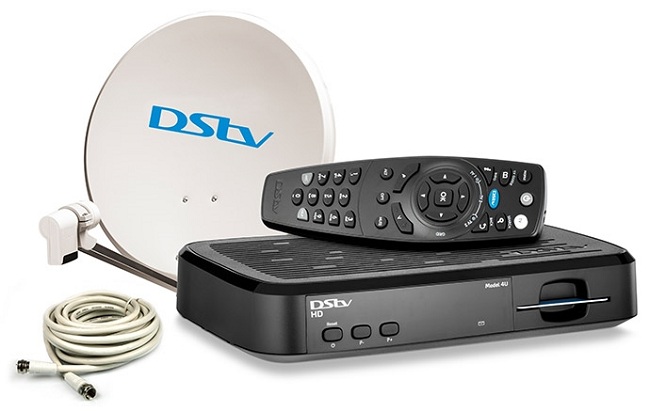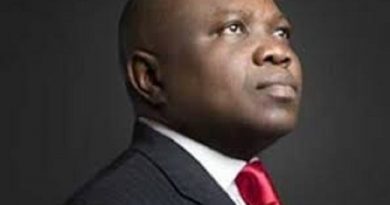Just In: Consumers And Operators Battle On Pay TV Control
Nigerian subscribers to the Digital Satellite Television (DStv) service, owned by South Africa’s multinational company, MultiChoice have insisted that the Federal Government must compel the firm to introduce a Pay As You Go service in the country.
This call comes on the heels of a directive last week by the Federal House of Representatives, compelling MultiChoice to immediately suspend the recent tariff hike across all its bouquets.
Checks by The Guardian at the weekend, however, showed that the tariff hike was still in force despite the directive. MultiChoice had increased tariffs across board earlier this month. The Pay TV firm had in a text message to users, said that effective June 1, 2020, it would implement 7.5 per cent VAT on all DStv services.
This invariably means that it was not prepared to shoulder the 2.5 per cent increase in value-added tax (VAT), from five to 7.5 per cent, which was legitimized by the signing of the 2019 Finance Act by President Muhammadu Buhari.
In 2018, Naspers, a multinational Internet group, headquartered in South Africa, claimed that MultiChoice had a total subscriber base of 13.5 million viewers, with Nigeria accounting for 40 per cent of that figure.
However, as at November 2019, during the presentation of its maiden financial results after listing on the Johannesburg Stock Exchange, the report showed that MultiChoice subscriber base across Africa was 15.1 million. South Africa accounted for 7.4 million, while the rest of Africa had 7.7 million.
Lagos-based Gbenga Akindele, who recently downgraded his subscription, said something must be done about MultiChoice.
‘‘Most Nigerians are paying for services that they are not using. I have been a Premium subscriber for many years, but I have not benefitted anything from the company.
The worst is that most times, I am on the road, which means my subscription is just burning off because the people at home too are out. When the message for tariff hike came last month, from N15, 800 to N16, 200, I downgraded to Compact Plus; enough of the exploitation!’
On her part, Benedicta Agom, a resident of Abuja, said: “As much as we don’t want tariff hike, we also want Pay As You Go. MultiChoice should know that there is no disposable income again in this country. We subscribe to the service because of the children. It is no more sustainable to keep increasing tariff, when Nigeria remains the largest market.’’
Agom said the services are poor, “any slight thunderstorm, the signal will disappear. On GOtv, if an aeroplane is flying, the service will go off, and we are still paying for bad services. The Nigerian authorities should look into this.”
The National President, Association of Telephone, Cable TV and Internet Subscribers (ATCIS), Sina Bilesanmi, in an interview, noted that Nigerians were generally being exploited by MultiChoice and other players in the PayTV market.
Bilesanmi argued that the fact that they were stuck with monthly prepaid subscription model against the people’s will meant that the company was exploitative.
‘‘Here is why: When you do your subscription today, and you travel for the next 30 days such that you have not enjoyed your subscription, it will have expired before your return, and when you come back, you’ll have to do another subscription to have access to their services.
“This is why ATCIS, as the only subscriber advocacy body in the country, has been canvassing that these PayTV operators should introduce another model known as, Pay-As-You-Go or Pay Per View,” he stated.
“A similar analysis of this is the way we buy recharge cards or data from telcos. If you do not use the airtime on your phone, you have no reason to buy another. This is justice!”
Responding in an earlier interview with the News Agency of Nigeria (NAN), in Lagos, Chief Customer Officer of MultiChoice, Martin Mabutho, ruled out the possibility of Pay-As-You-Go.
“We are not going to introduce pay as you view system. Our contract with our suppliers is on a month-to-month basis.
“The issues of not introducing pay as you view remains. Nothing will change it. The channels do not belong to MultiChoice. What we do is to slash our prices in half to make our customers enjoy our services,” Mabutho said.
Contrary to news making the round that MultiChoice offers Pay-As-You-Go services in other markets in the region, Checks by The Guardian showed that across countries in sub-Saharan Africa, where it is broadcast, the mode of subscription remains the same, even in South Africa.
Speaking on the issue of Pay Per View, an industry expert, who craved anonymity, said, on the contrary, the models are not cheap, compared to what is currently obtained in the market.
He said: ‘‘PAYG, to those who desire it, is the same as Pay-per-View (PPV), which they assume ensures the delivery of pay-TV programming a la carte – in the misguided belief that it is cheaper. Well, it is not. It is, in fact, way more expensive, and it is not exactly Pay TV.
“The PPV model is used in the broadcast of special events, usually of the high-ticket variety in sports and entertainment. It is available via cable and satellite television subscription as well as via the Internet.
“Last February, the Deontay Wilder/Tyson Fury heavyweight boxing rematch was sold on PPV at the cost of $79.99 (HD), and $69.99 (SD) to boxing fans in the US. In the UK, it cost £61 (HD) and £53 (SD). It ended in the seventh round. It would have been the same if it ended in the first round, as no refund is made.”He stressed that the spike in demand for PAYG comes from the telecommunications sector, which is assumed to be the same as pay television.
‘‘Clearly ignored when making comparisons is the fact that television companies, more often than not, buy the content they redistribute. The programmes, on account of the fierce competition among pay TV companies, are bought at near-extortionate sums, and contracts for them are renewed at a king’s ransom.
“Telcos, on the other hand, do a one-off payment for spectrum. Also, on the technological front, both fields are dissimilar. While telecoms is a two-way, satellite broadcasting is one-way, leaving broadcasters unable to know if a subscriber is watching or not, as the signal is sent to the decoder, which sends no feedback.
Thus, for PAYG to be possible, a complete overhaul of the broadcast architecture and billing model is required. This, if it happens at all, would cost an arm and a few legs, which will certainly make services far more expensive.”
MEANWHILE, the new broadcasting code announced by the National Broadcasting Commission (NBC), has continued to unsettle the industry, with the sector forecast to lose a N4trillion projected growth in four years, if implemented.
The new code also compels content sub-licensing, as it aims to forcefully regulate the prices at which content is sub-licensed by Pay-TV operators and rights owners, regardless of whether they have recouped their investment or not.
Conference Coordinator, Henry Ekechukwu, said: “We strongly believe that government policies such as this will end up discouraging investment in local content production, especially sports and entertainment, and adversely impact the wider media business—a profitable industry projected by PricewaterhouseCoopers (PwC) to be worth an estimated N4 trillion by 2024.”
Ekechukwu said the amended NBC Code would hurt the Nigerian economy, leading to job losses, and loss of billions in taxes and other related fees charged by the government.
“We hereby call on the National Broadcasting Commission, and the Federal Government to reconsider, and reverse this decision. The focus at this time should be on creating policies that will empower as well as encourage the entertainment and media industry to exponentially thrive and create a favourable environment for the kind of economic growth that Nigeria desperately seeks,” he stated.
In the same vein, a Senior Lecturer in the Department of Mass Communication, University of Lagos, Dr. Olorunifesi Suraj, said government’s plan on the amended code was to maximise tax and have control of the sector.
Suraj, a UNESCO consultant on Media and Information Literacy, explained that the clamour for increased taxes has been high in Nigeria; as such, every government agency and parastatal are looking for means to generate money.
According to him, the government also wants to have control of the sector through licensing and other means. “If you look at the sector, you must have heard the Minister of Information, Lai Mohammed, clamouring for the regulation of that space, especially online, and ensuring they know those operating in the creative industry-independent producers, content creators, among others.
The government wants to stimulate growth to ensure that players are not cheated out of business.”
An advocacy group, Paradigm Initiative, said the Code might set back innovations in the country’s digital space, saying: “The Internet space in Nigeria is developing and innovation is to be encouraged.
“However, policies like this can greatly discourage the development of technology and technology-based services and create an unfavourable environment for the kind of economic growth that is relevant in this age.”
But, defending the Code, Acting Director-General (NBC), Prof. Armstrong Idachaba, said the Code Amendment was to protect local operators, promote creativity, and maximise local content.
Idachaba said the amendment would also benefit the local media industry as well as attract foreign investments in the digital space. Without bias, he said it would checkmate monopolistic behaviour and enhance the creative industry.
“The objective behind the amendment is key and pivotal to the development of broadcasting in Nigeria and the reform of the industry,” he said.
“However, while NBC acknowledges the mixed reactions by some interests to the release of the amendment, we consider it strategic and healthy for the growth and development of the broadcast industry in Nigeria.
“I want to sincerely commend those who have intellectualised and enriched the discourse with incisive and decent arguments both for and against.”




